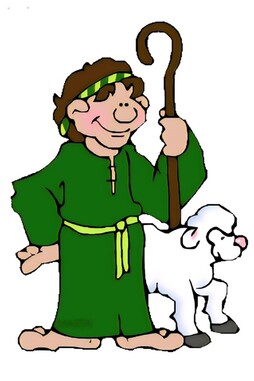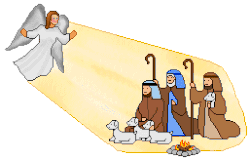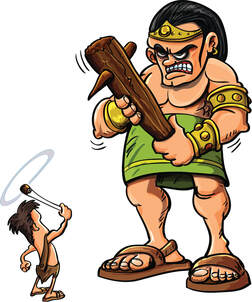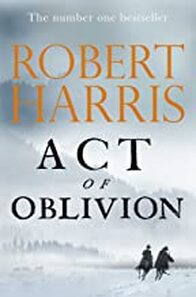|
It's Christmas and we here at Selfishgenie Publishing are taking a well earned break.
But don't worry, our blog will be returning on Saturday 7th January 2023, so watch our socials for information on what we will be blogging about. In the meantime, we would like to wish you a very Merry Christmas and a Happy New Year. And don't forget, books published by Selfishgenie are a great way to use those Amazon vouchers you got for Christmas.
0 Comments
In this last blog before the Christmas holidays, we've handed it over to one of our authors to get her take on one of the stories from Christmas. All views expressed are those of the author and aren't necessarily those of Selfishgenie Publishing. Note: This is a work of fiction.  The first Christmas Day - a hillside near Bethlehem - night has fallen. “It’s a cold one tonight, alright.” Dave said as he returned from checking what the sheep were up to out on the side of the hill. He stretched his hands towards the fire and rubbed them to restore his circulation. He saw that the food was cooked and took a piece, savouring its delicate musty flavour. “You’re not wrong there.” Another Dave replied. “If it gets any colder I’ll have to wrap a fleece around my shoulders.” “Shhhh!” A different Dave hissed, pointing towards the sheep. “If they hear you say that they’ll get upset. You know how easily upset they get and seeing your drape the skin of one of their half brothers around you will get them in a really bad mood.” “Sorry, wasn’t thinking.” Another Dave apologised. He popped a morsel of food into his mouth. “Hey!” The first Dave said, pointing towards the sky. “What’s that bright light?” “Where?” A different Dave replied, searching the heavens, but looking in entirely the wrong direction.  “There, you idiot! Over there, near where that bright star’s been for the last few nights. But this one’s moving. Look, it’s getting bigger and it seems…” realisation dawned on him. “It seems to be coming straight for us.” “One of those burning rocks we sometimes get.” A different Dave responded, disinterestedly. “Hang around on this hillside long enough and you’ll see plenty of them. Course, you’ve only been a shepherd a few weeks, but us old hands, like another Dave here, we’ve seen it all, haven’t we?” Another Dave nodded his head. “We sure have. But I have to say this one looks a bit different. For a start, it’s a lot brighter looking, and it isn’t moving in a straight line like they normally do. This one is sort of … well, zig-zagging a bit, like it's looking for someone to hit.” “Hang on,” The first Dave said. “It seems to be slowing down, sort of hovering like.” “Kneel before me, Puny Humans.” A voice boomed out of the brightness.  “No need to shout mate. We’re right here. We can hear you, you know. And turn the brightness down a bit while you’re at it.” Another Dave shielded his eyes from the glare. “Oh, sorry.” The voice got quieter and the light dimmed, to reveal a figure within it. “Now, where was I? Oh yes. Kneel before me, Puny Humans.” “Do you mind if I don’t” A different Dave said. “At my age the old knees give me a bit of trouble if I kneel. If it wasn’t for the herbs I chew, I’d be in constant agony.” “Oh, OK. But you other two ….” “I kneel before no man!” Another Dave pronounced, taking up a pugnacious stance. “Women though, that’s different. I’ll kneel before a woman anytime, if you get my meaning.” He leered and let out a dirty chuckle. “Well, if you two aren’t kneeling, I’m certainly not.” The first Dave chipped in. “I am the Archangel Gabriel!” The voice figure turned up the volume to booming level again. “I am the Messenger of God. Why do you not quake before me?”  “Look mate, no offence or nuffin’, but we’ve ‘ad Canaanites, Hittites, Assyrians, Babylonians, Egyptians, Sumerians, Greeks and now Romans through here. They couldn’t make us kneel, so you’ve got no chance. You may be the Messenger of God, but you ain’t God, so we ain’t kneeling. Nor are we quaking, trembling, worrying or hurrying.” Another Dave said his piece and sat down at the fire once more, his back to the Archangel. “Oh, well … erm, OK, I guess you don’t have to kneel then.” The Archangel admitted defeat, the volume of his voice once again reduced to a more conventional level. “I must say, you make a nice change.” A different Dave said. “Normally we get burning bushes or columns of fire that talk. It’s nice to have an Archangel for once.” “There was that talking frog, that time. remember?” Another Dave said.  “Oh yeah. We heard that after we ate those funny mushrooms we found on the hill.” “In fact, we generally hear things when we eat the funny mushrooms, come to think of it.” The first Dave observed. “I wonder if the two things are …” “If I might get us back on track.” The Archangel interrupted their reminiscences. “I’ve got a city to destroy for failing to obey the Word of the Lord and if I don’t deliver this message first, I’ll be late.” “Oh yeah, you go ahead then.” The first Dave said, sitting back down next to the fire, opposite another Dave but facing the Archangel. He popped another morsel of food into his mouth. “Hang on a minute …” The Archangel said, puzzlement in his voice. You …” he pointed at the first Dave. “Your name’s Dave, right?”  “It certainly is. Dave bar Dave, that means son of Dave, seeing as you’re a stranger around these parts.” “I know what ‘bar’ means.” The Archangel replied testily. “I’m not a moron.” “That’s a matter of opinion.” Another Dave muttered. “And you … You’re Dave too.” He pointed at another Dave. “That’s right. There’s Daves in our family going all the way back to Noah.” “And he’s Dave?” he pointed at a different Dave, who thought the dark shadows away from the firelight concealed the fact that he was picking his nose. “That’s right. Everyone around here is called Dave. ‘Cept the women of course. They’re all called Davina instead.” “But why? Isn’t that a bit confusing?” “’Spose it is a bit.” Another Dave conceded. “But this ‘ere …” he swept his arm around to encompass the nearby city. "This ‘ere is the City of David, so we’re all called Dave, or David if we’re on our Saturday best behaviour.” The Archangel shook his head, but wisely decided not to pursue the subject anymore. Instead, he refocused himself on delivering his message.  “This night, in the City of Bethlehem, a child was born. He is the Son of God and he shall be called Emmanuel.” “Emmanuel, eh? Sounds a bit French to me. Why can’t he be called Dave like everyone else?” Another Dave asked. “Because God wants him to be called Emmanuel and, as he’s God’s son, I think God has the right to name him!” The Archangel was clearly losing his patience. “Alright, alright. Keep your wings on Archie. Anyway, what’s this got to do with us?” “You are commanded to go to Bethlehem, to the stable where the child was born, and there to pay Him homage and to worship Him.” “A stable, eh?” The first Dave said. “Doesn’t sound too hygienic for a new-born baby. And if he’s the Son of God, you’d expect him to be born in a nice private hospital, wouldn’t you?” “God wanted it this way.” The Archangel snapped. “Look, are you going or aren’t you? Because if you aren’t, I’ve got to find someone equally as common … I mean humble … as you to go and bear witness to the child’s birth.” “But why us? Why should we go?” “In years to come, there will be a need for men to bear witness to the circumstances of His birth, that’s why. You’re as good as anyone. Oh, and there are three Wise Men on their way too. They will be witnesses as well.”  “But we didn’t see him being born.” A different Dave objected. “We’re only finding out about it now. And, anyway, one baby looks just like another baby. They all look like little Buddhas.” “For heaven’s sake don’t drag Buddha into this. We’ll be here all night. Look, go, don’t go. I’m past caring.” With that the Archangel turned up his brilliance again and shot skywards, fast dwindling into a distant speck of light, which then got lost amongst the stars. “Bloody Archangels. Think they’re God’s gift.” Another Dave muttered under his breath. “I suppose they are really; God’s gift I mean.” The first Dave said to no one in particular. “That would explain the bright star hanging over Bethlehem. It's a wachamacallit … a sign.” A different Dave said. “Yeah, I suppose it is. But I didn’t think it meant ‘Son of God born here.’” “Are we going, then, to Bethlehem?” The first Dave asked. "I quite fancy a night out." "There’s no point.” A different Dave said. “How can we be witnesses? No one ever comes up here, so we can’t tell them what we saw. And we can’t write it down ‘cos we can’t write. If we could write we wouldn’t be shepherds, we’d be Wise Men, or at least postmen. So let the Wise Men be witnesses. Or the postman, for that matter.”  “That’s good thinking, that is.” The first Dave said. “Those Wise Men are bound to write down what they saw and then the whole world will be able to read their eyewitness testimony. Maybe they’ll get their own section in the Bible, when it’s updated of course. You know, Bible 2.0.” “Yeah,” said a diffident Dave said. “They’ll probably get a whole book to themselves, like Isaiah or Deuteronomy. Who was Deuteronomy, anyway?” “Wasn’t he a cat?” The first Dave answered, sure he’d seen him in a show at some time. “Besides, there’s no one to mind the sheep. I think the whole thing’s a scam anyway.” Another Dave stated, throwing another log on the fire. “What do you mean?” The first Dave asked. “Think about it. It’s obvious, innit? That Archangel comes down here, spins us a yarn about the Son of God being born in a stable, so we go rushing off there to see it. Then, when we come back, the bugger’s nicked all our sheep while we were gone.” “But what about the Wise Men?” The first Dave persisted. “That’s the biggest clue of all. The only Wise Man you’ll ever see in Judea is the one that looks after his sheep and doesn’t let some passing Archangel nick ‘em!” “Yeah.” The first Dave mused. “Maybe you’re right. Got any of those funny mushrooms left? Or did we scoff the lot before that Archangel arrived?” If you have enjoyed this blog and want to make sure you don’t miss future editions, just click the button below to sign up for our newsletter. We’ll even give you a free ebook for doing so.
We’re taking a break over the Christmas and New Year period, but we’ll be back with a new blog on a publishing, book marketing or author based theme, on Saturday 7th January. In the meantime, all the staff here at Selfishgenie Publishing, and all our authors, wish you a very Merry Christmas and a Happy New Year. This week we hand over our blog to one of our authors, Robert Cubitt, who has been dabbling in the world of audiobooks. All views expressed by the blog's author are his own and are not necessarily shared by Selfishgenie Publishing  As an Indie author, have you ever wondered if you should turn your masterpiece into an audiobook? I did wonder, so I did some research to see if it was the right thing for me (spoiler alert – it was). First of all, the market for audiobooks in the UK in 2021 was £151 million, up from £133 million in 2020. In the USA the market was worth $4.2 billion in 2021 and is expected to grow to $33 billion by 2030. Just a microscopic slice of either of those pies is a significant amount of money. So, why are more Indie authors not pursuing this avenue for selling their books?  Aside from snobbery (some authors don’t believe that audiobooks are really books) the answer is cost. First of all, audiobooks cost far more to buy than either an ebook or a paperback. In the US an audiobook will cost between $20 and $30 and prices are comparable in the UK. For this reason, many audiobook retailers work on a subscription basis, allowing listeners to download multiple titles each month for around $15 (and the equivalent in pounds).  If you subscribe to Spotify or iTunes, you will already be familiar with this and Audible provides a typical subscription model for audiobooks. In essence it is no different from what KindleUnlimited does for ebooks. The reason behind this cost is that an audiobook requires a narrator, and they don’t come cheap. If you want a well-known actor to narrate your book you can think of a starting price in excess of £3,000 ($3,500) and some audio books use more than one actor: an overall narrator, a male character lead and a female character lead, which further increases the cost. The cost of those voices has to be recovered before either the author or the publisher makes a penny in profit.  But I wasn’t going to be deterred by this, so I went looking for cheaper options – and found them. I’ll be talking about acx.com a lot, as they are the largest distributor for audiobooks. They sell audiobooks through Audible, Amazon and iTunes, which between them control around 80% of the audiobook market. If your audiobook isn’t on acx.com, it isn’t anywhere. But I’m getting ahead of myself. The first thing you need if you want to publish an audiobook is a narrator. So how do you find one of those? And, more importantly, how do you find one that won’t charge an arm and a leg to work with you?  My starting point is the same as for any job I want doing in relation to publishing: fiverr.com. A search for “audiobook narrators” provided me with an extensive list of potential candidates. Each one has posted an audio clip of their voice, so you know what you are getting before you even approach them. If your book is British based you will want a British accent (unless you are Lee Childs, who sets his books in the USA), likewise if you are an American author you will probably want an American accent. You may want to choose between a male and a female narrator. Whatever you want, you will probably find someone to offer it. There’s even one that offers to read a French translation of your book for the French market.  Rates for narrators vary and they quote their prices by 100, 200, 250 words etc so do check carefully what they are quoting so that you can compare prices properly. The narrator I picked out suggested a starting price of £4.54 (around $5.25 at current exchange rates) for 250 words, which is very much at the economy end of the scale. (I will provide his details at the end of the blog.) But his voice sounded good, so I asked for a “custom quote” based on the length of my book. My narrator came back with a quote of $1,800 (about £1,560).  If that makes your eyes water, then I empathise because it made my eyes water too. However, you must remember that, unlike many services, you aren’t just paying for time, you are also paying for talent. But my books have been doing well recently and paying that amount from my recent royalties wasn’t out of the question. However, I wasn’t going to commit to that amount of money on the spot. I messaged back to the narrator to say I would think about it and get back to him. At which point the negotiations really started. My narrator told me he could do it for about half that amount, but with a royalty share option – 50:50. This is a facility that acx.com operates, so the author doesn’t even have to pay the royalties to the narrator; acx.com does that. If you think that is giving away a lot, please remember that 50% of something is always better than 100% of nothing.  So, we agreed $900, which would be paid through Fiverr.com and the rest would be paid in royalties through acx.com. So, just a quick conversion for my British readers, I paid about £780 upfront to my narrator, plus Fiverr.com’s charges. Please note that the royalties scheme has no limit to it. The author doesn’t stop sharing when a certain level of royalties have been reached. It goes on for as long as the audiobook remains on sale. That can mean my narrator receives a lot more than $1,800 if the book is a good seller, which is why some narrators like this way of doing business. But, if the book isn’t a good seller, my narrator (and me) may not make very much from it. That’s the gamble we are both taking.  Don’t be surprised if your narrator asks about your ebook and paperback sales figures before he or she agrees to a royalty share deal. And they may check out the book’s sales ranking on Amazon, so don’t try to fool them. Having never done this before, I decided to find some resources to tell me how it all works. In terms of the technical requirements for the book, I found this helpful check sheet. It gets a bit technical in parts, but it does provide the basics. Most of that is your narrator’s responsibility, but it does no harm for you to know about it too. I then found this video on YouTube which provides a practical demonstration. That is stuff that you as the author will need to know in order to upload your audiobook for distribution.  In terms of uploading your book, it is no more difficult than using any of the self-publishing websites with which self-published authors, like you, will already be familiar. However, there are two things which are very different:
Because I had already decided on my narrator, I didn’t need to get into the audition process. But basically, if you want to look for narrators who are already registered with acx.com (and the vast majority are) you can upload an extract of your book for prospective narrators to audition and bid for the work. You can apply filters for your narrators, such as nationality, language, gender, accent, and general tone of voice you want for your book (serious, dramatic, humorous etc). If you have already decided on your narrator, as I had, you can search for them by name in the appropriate section, and they will be linked to the project.  When you tell acx.com the wordcount for your book, they do a calculation on how long it should take for a narrator to read (a 90k book is about 9.5 hours). In the appropriate section of the site, you can then enter an hourly rate you are willing to pay. Multiply one by the other and you get an indicative cost for your audiobook. I would suggest a starting price of about $50 (£45) per hour. If you don’t get any bids to narrate your book by the cut-off date that you specify (typically 2 - 5 days) you can increase the hourly rate until you get a bid with which you are satisfied. The site pays royalties of 40% for exclusive distribution rights for your book or 25% for non-exclusive rights. I went for exclusive, which gives me 20% and my narrator 20% Having already chosen my narrator, and found him in acx.com’s directory, I filled in the details for the royalties share scheme. This section also asks if you agree to fund some or all of the narration costs. Don’t tick that box if you have agreed a “royalties only” scheme with your narrator, as I had; acx.com doesn’t need to know about the lump sum payment made using Fiverr.com Caution: once you have posted these details you can’t change them. You have to cancel the whole project and start again (as I discovered).  And that’s about it. Your chosen narrator will get to work and provide you with a 15 minute segment, so that you can verify they are narrating your book the way you expected. Once you have signed off on that they will carry on with the rest of the recording and they upload the files when they have finished. You listen to the files to make sure you are satisfied and after that it is no different from publishing an ebook or paperback. Publishing an audio book isn't a speedy business. Firstly you have to wait while your narrator actually narrates your book and it probably isn't their full time job, so they will be doing it in their spare time. Secondly, once it is uploaded there is a lengthy quality review process which acx.com says takes 10 business days to complete but which took longer in the case of my book, for some unexplained reason. Then comes the hard part, of course – marketing the audiobook. Because, just like any other publishing medium, no-one is going to stumble on your book by accident. You have to tell readers/listeners about it, and where to find it. But this is where you get a little bit of a bonus by being on a royalties share basis. Because your narrator has a vested interest in the book being successful and they will probably do some marketing on their own behalf. Can you narrate your own book?  If you think you have the voice for it, then of course you can. But beware, acx.com has very tight quality standards and you may not be able to reproduce these at home. Readers also want a “clean” listening experience, so they don’t want to hear the sound of your children squabbling in the background, or your dog barking at the neighbour’s cat (or both). See the technical checklist I linked to above. So, how successful has my audiobook been?  I have no idea because it has only just been launched. But I’ll be back after Christmas with an update, so be sure to check back. And if you want to find out more about my audiobook version of Operation Absolom, you can download a free extract here. Or you can check it out on Amazon by clicking here. If you are an author who would like to use a male British narrator for your book, then I am pleased to recommend Michael Hajiantonis. You can find him on acx.com under that name or you can do what I did and find him on Fiverr.com using this link. If you would like to get a promo code for a free download of the Operation Absolom audiobook, just email us through our contact address. All we ask in return is for a review and a share on your social media. Good luck! If you have enjoyed this blog and want to make sure you don’t miss future editions, you can sign up for our newsletter. We’ll even send you a free ebook for doing so. Just click the button below. This week we hand our blog to one of our authors, who is reviewing a book.  I’m a lover of historical fiction, so when I heard about this book it was an easy decision to buy it. What made it even more attractive was the fact that many of the people who are used as characters in the book were real. They lived and breathed and did many of the things that the author attributes to them. While some of the story may be fiction, a lot of it is historical fact. Act of Oblivion, by Robert Harris, is set during what was known in England as “The Restoration”. That period after the end of the rule of Oliver Cromwell, when the monarchy was restored to England (Useless trivia- it was still known as England even though it included Scotland, Wales and Ireland. It wouldn’t become “Britain” until 1707). When Oliver Cromwell died, it was his wish that his son, Richard, succeed him as “Lord Protector” (King in everything but name). However, the English establishment didn’t fancy that. If they were going to have a King, they wanted it to be a proper King and the rightful heir to the throne. So, Charles Stewart, son of the executed King Charles I, was invited to come back from his exile in Flanders. There was the thorny issue of what to do about the people who had fought against his father, so The Act of Oblivion was passed by Parliament. This guaranteed that a free pardon was granted to all who had fought on the side of Parliament during the English Civil War, with the exception of a small group of people. That small group of people included the men who had sat in judgement on Charles I at his trial and those who had signed the warrant for his execution, about 50 or so men. A couple gave themselves up in the hope of receiving Royal mercy, some had already died of other causes, some were living in exile in Europe, and some had gone into hiding in England. At least two fled to the American colonies, where there were many allies of the Parliamentary cause and its Puritan religious supporters. The book starts in 1660, just after Charles II returned to the throne, with the arrival in New England of Colonel Edward Whalley and Colonel William Goffe. They are two former soldiers in the Parliamentary Army (Roundheads, as they were known because of their dome shaped helmets) who are on the run under threat of execution, having been two of the signatories of the execution warrant of the late King Charles. Whalley also happens to be Goffe’s father-in-law. They were real people. As well as being a soldier, Goffe is also a zealous Puritan, with a knack for giving rousing sermons. Whalley, while being Christian, is less committed to the Puritan ideal. Much of the story follows their travels around the fledgling colonies of Massachusetts and Connecticut as they try to evade capture and are protected by likeminded colonists. In London we have Richard Naylor. He is fictitious, but as Harris says in his introduction to the book, if you have a hunt, you must have a hunter and Naylor represents all the real life hunters of the wanted men. Naylor is a bitter man and is relentless in his pursuit of Whalley and Goffe, against whom he has a personal grudge, as well as the others under sentence of death. He is Clerk to the Privy Council, which allows him to wield enormous power. However, he finds that his power is limited by geography and what he can do in England to intimidate people he isn’t able to do in America, despite it being under English rule. London is a long way away and it would take a lot of English troops to enforce the warrants that Naylor is carrying. "You don’t have to know much about the English history of this period to enjoy this book" I think we are supposed to feel some sympathy for the characters of Whalley and Goffe. They were coerced into signing the execution warrant by Cromwell (which really happened) and see themselves more as victims. However, I had little sympathy for them. There is a considerable difference between doing one’s duty as a soldier and signing a death warrant because you have been ordered to. do so. But that is just my opinion. You don’t have to know much about the English history of this period to enjoy this book. Pretty much all the historical information is skilfully fed into the narrative along the way. It is very well researched. If you are an American and would like to understand a little more about what life was like in your country in the second half of the 17th century, then you may find this book of interest. You may also discover why your country has some of the political and religious views that are held by some people today, because history does sometimes repeat itself. You will also find out how New Amsterdam became New York. The pace of the book is what I would describe as “steady”. There are points of high action, but there are also long passages when not a lot happens, which is why I have only given the book 4 stars rather than 5. Whalley and Goffe are in hiding for lengthy periods and it’s difficult to inject much pace into those sections. However, they are important when it comes to understanding the historical and religious context of the English Civil War, as Edward Whalley starts to write a memoir of Cromwell, which tells us a lot about the man.. Harris is a very successful author, so it is not for me, a mere reader, to comment on his writing skills, but I can tell you that I never lost interest in the book, and I also learnt a lot, sometimes without even realising that I was learning things. I would recommend this book to readers of historical fiction on both sides of the Atlantic Ocean. If you want to know more about “Act of Oblivion” by Robert Harris, just click the cover image or use this link. |
AuthorThis blog is compiled and curated by the Selfishgenie publishing team. Archives
June 2025
|


 RSS Feed
RSS Feed